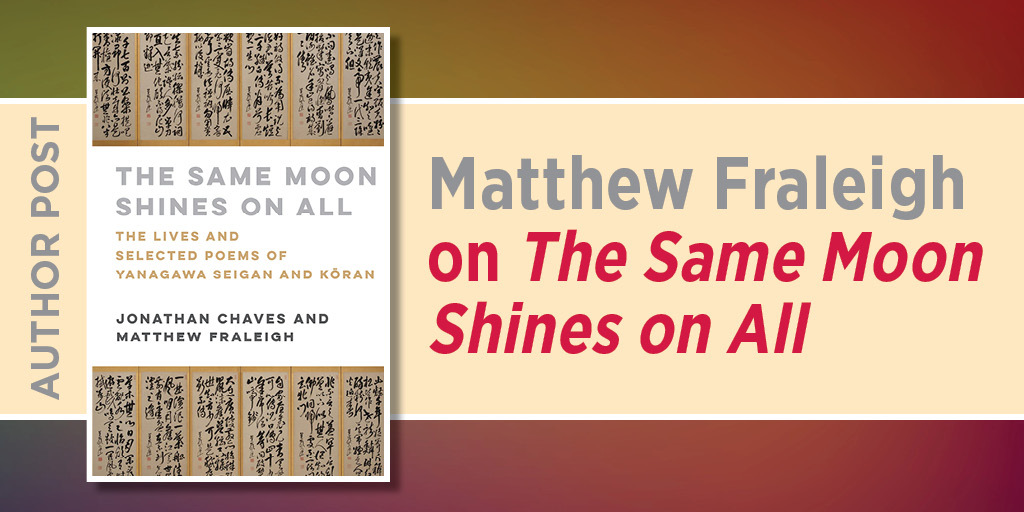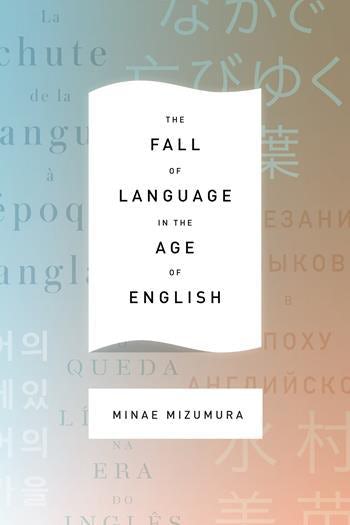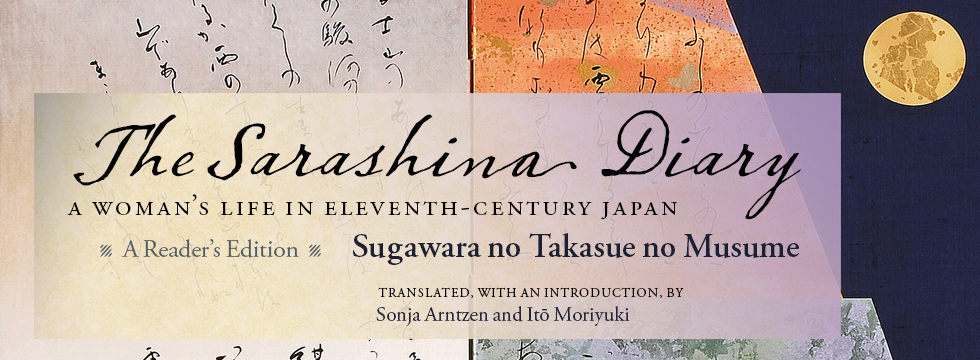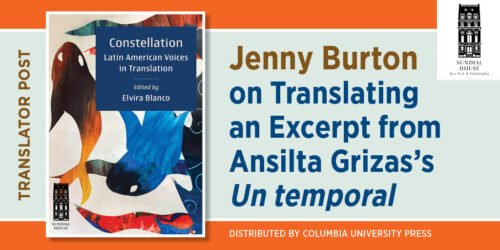Matthew Fraleigh on The Same Moon Shines on All

The last few decades have been a time of great change for the field of Japanese literary studies. The scope of the category “Japanese literature” is very differently conceptualized than it was just a generation ago; it now embraces a much broader range of forms and genres, incorporating many more texts written outside Japan, and including works composed by non-Japanese individuals, for example. Perhaps even more fundamentally, there has been a dramatic rise in interest in what is now called kanshibun (Sinitic poetry and prose), works composed in literary Chinese, the shared written language of the Sinographic sphere.
When modern Japan’s academic departments of “national literature” were launched in the early 1890s, they defined themselves through an exclusive attention to works written in Japanese, which had then been recently re-conceptualized as Japan’s “national language.” But it is increasingly part of the shared “common sense” of the field that the Sinitic traditions of Japan, so long ignored by modern scholars both in Japan and abroad, are an essential part of the picture. One indication of this change in the field is found in the introduction to the recent authoritative reference work The Cambridge History of Japanese Literature (2016), edited by Haruo Shirane and Tomi Suzuki, with David Lurie. The editorial team highlights repeatedly the effort they made to locate “Japanese literature in a wider East Asian tradition of Sinitic writing” and to give more attention to the Sinitic traditions of Japan, pointing to this more capacious (and accurate) view as one of the volume’s distinctive features and advances over previous comprehensive histories of Japanese literature.
The volume that Professor Chaves and I have collaborated on is very much part of this rethinking of the field of literary expression in nineteenth-century Japan. The Same Moon Shines on All: The Lives and Selected Poems of Yanagawa Seigan and Kōran showcases Professor Chaves’s delightful translations of a generous range of poems by Seigan and his wife Kōran (one of the most significant female composers in the genre). These translations are satisfying as poetry without compromising at all in terms of accuracy and fidelity to the original texts. In my introduction to the volume, I place the poets in their cultural and literary historical context, writing in a manner that I hope is accessible to general readers while also being meaningful to specialists. Neither strictly a volume of translations nor a volume limited to scholarly analysis, our book fuses the two approaches into an organic whole and addresses itself to a broad audience of readers.
It was in 2017 that Professor Chaves first contacted me to share his enthusiasm for Seigan and Kōran. As a specialist in the literature of the period, I was of course familiar with these two poets, but I had not explored their work in any depth. His invitation to collaborate on a book provided a welcome opportunity to delve deeper into their world over the course of these past few years. I am delighted that Columbia University Press is publishing this book to introduce Seigan and Kōran to a wider readership.
Matthew Fraleigh is associate professor of East Asian literature and culture at Brandeis University and coauthor of The Same Moon Shines on All: The Lives and Selected Poems of Yanagawa Seigan and Kōran.








